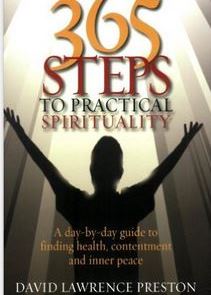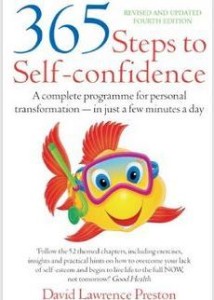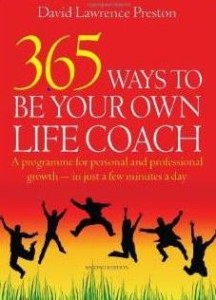I was asked to give a talk on love for Valentine’s Day. I accepted. Shouldn’t be too hard, I thought. After all, everyone wants to love and be loved, don’t they? I soon wished I hadn’t. Like Prince Charles I couldn’t even decide – what is love?
I trawled the internet. I found the views of poets, philosophers, psychologists, theologians, novelists and neuroscientists. This merely confirmed my suspicion that the word means very different things to different people. For example:
- My dictionary says love is ‘Deep affection or fondness; a concern for, and commitment to, each other.’ (But what about love of life, love of country, etc?)
- At a conference of sociologists in America in 1977, love was defined as ‘the cognitive-affective state characterized by intrusive and obsessive fantasizing concerning reciprocity or amorant feelings by the object of the amorance.’ (Are you any the wiser?)
- Psychological researcher Havelock Ellis took a simple view: love = sex + friendship. (Not very satisfactory.)
- M Scott Peck (Author of ‘The Road Less Travelled’) defined love as ‘Concern for the spiritual growth of another.’ (A good one, but what does it really mean?)
- In his book, ‘The Four Loves’, CS Lewis says there are four main types of love – affection, friendship, eros/romantic love, and charity. (Would Aslan agree?)
- My favourite came from Plato, written 2,500 years ago, that love is a noble idea, or ‘form’.
Love as a ‘Form’
Plato believed that behind every tangible thing is an idea, or ‘form.’ These are independent entities which exist whether or not we are aware of them and able to grasp them with the mind. For example, behind the physical form table is the idea of table. So love exists in the universe as an idea and as an ideal. We only become aware of it when it enters our experience. My experience of love is different from yours, meanwhile, the idea of love (also wisdom, justice, honesty, beauty and so on) remains constant, permanent and unchanging.
Plato’s ideal of perfection was love that is:
- Fearless
- Constant
- Non-discriminatory
- Unconditional
- Completely unselfish, and
- Endlessly forgiving
He urged us not to judge by appearances, but seek what is real, not what merely looks real. And perhaps that’s where many of us go wrong. We confuse real love with something rather less, and in doing so, we condemn ourselves to constant disillusionment and disappointment.
So let’s consider love from a number of different perspectives, to try and discern what is real.
Sexual attraction
Anthropologist and ‘love expert’ Professor Helen Fisher, author of ‘Why We Love: The Nature and Chemistry of Romantic Love’ (2004), regards love as merely an instinct driven by a collection of physical and hormonal changes over which we have no control. She claims that the brain has three chemical systems for dealing with love – one for sexual attraction, one for romantic yearning and another for attachment. The first draws you to a person; the second motivates you to focus your attention on them; the last enables you to stay with a mate long enough to rear children.
When working properly, these systems ensure we meet the right match and sustain that connection over time. But it can also warp our senses, distort our perceptions, play havoc with our thinking and cause us to behave – to put it mildly – most unwisely! And in no area is this more true romantic love. For example, research has shown that men lose the ability to think rationally in the presence of a pretty woman (did we really need research to prove this?). The face, body and any sexual signals given off consciously or unconsciously can easily override common sense.
Romantic love
Romantic love is usually thought of as strong feelings reserved for one special person. Sometimes indistinguishable from infatuation, it is unpredictable and frequently beyond our conscious control. When we fall in love, our bodies are flooded with feel-good chemicals such as testosterone, dopamine and serotonin. It’s as if a switch has been thrown and a different programme has started to run. In the early phases, when sophisticated bio-feedback sensors are attached, scientists find the effect on the body is similar to the effects of an obsessive-compulsive disorder!
The main problem with romantic love is that something suppresses the usual fault-finding mechanisms – we’re blinded and deafened to the reality of the other, including their so-called defects. That’s why a honeymoon has been described as ‘a short period of doting between dating and debting’.
And yet romantic love is highly prized in Western Society. Our media are obsessed with it and full of articles on how to find it. They mostly focus on attracting the person you fancy by appealing to their five senses: how to dress, how to use your voice, what perfume to wear, how to kiss, choosing sexy foods, and so on.
Romantic love renders our normal self-protection systems useless. Perceptions are distorted, clear thinking faculties disabled. Our biology knows this, which is precisely why the feel-good chemicals that act as they do. If they didn’t, our DNA would have a much smaller chance of being passed on!
If the loving relationship is to survive, romantic love must transform into something else – deeper, long lasting – and more practical. So our biochemistry adjusts, as we shall see.
Love as needs fulfillment
Motivational experts tell us that all motivation and ultimately behaviour is based on perceived needs. These needs may be physical or emotional, rational or irrational.
A friend told me this story. Two elderly men were talking.
‘I hear you’re getting married,’ said the first.
‘That’s right.’
‘Do I know her?’
‘Don’t think so.’
‘Is she good looking?’
‘Not really. She has a face like a pig.’
‘Is she a good cook?’
‘Dreadful!’
‘Then she must have lots of money.’
‘Not at all.’
‘Is she good in bed?’
‘No idea. Never tried.’
‘Then why on earth do you want to marry her?’
‘Because she has a car and at 82 can still drive!’
It’s interesting to think of what needs love fulfils – or what needs we hope, expect or want love to fulfil. There are physical needs of course, but in this day and age, in the West at least, most of our needs are, in fact, emotional. Some psychologists believe that love is simply a blend of emotions with survival value.
Love as an emotion
Emotions are part of our biology – they are, in effect, physical responses to our thinking and our belief systems. They can feel wonderful, but they can also bring misery. They can ruin our ability to think clearly, which is why acting on our emotions is not always the best way. As we mature, we leave childish emotions behind and earn more adult ways of functioning. Or do we?
Not always. Many of us fall in love with people who aren’t necessary right for us. ‘Ever fallen in love with someone you shouldn’t have fallen in love with?’ Among the reasons people make this mistake are:
- Looking for someone to take their pain away, to remove loneliness, self-doubt, poverty, etc.
- Trying to make themselves complete through another person.
- Romantic delusions: For example, ‘We need each other so badly’, or ‘I want to marry you and have your children – see how much I love you? How unselfish I am!’
Needs based ‘love’ is all too often bound up with emotions such as fear and selfishness. It can arouse fierce passions such as jealousy, possessiveness and revenge, and can easily be confused with:
- Co-dependence – ‘I need you; I can’t live without you.’
- Conditionality – ‘I’ll love you, but only if…’
- Lust – ‘I fancy you.’
- Romance – ‘I love the fantasy I have of you.’
- Hope – ‘I love you but I wish I could change you.’
Long-term loving relationships
The things that first attract us to each other are not necessarily those which keep us together. It used to be said that humans are one of the few species where a couple naturally stay together to support the offspring they have created. In reality, this may no longer be entirely true, but is still seen as the ideal. Stable societies depend on stable family groupings, which is why it is regulated by law and enshrined in religion and custom.
Where the will to stay together is present, the transformation to long-term loving relationships is supported by our body chemistry. The feel-good chemicals endorphins and oxytocins replace the sex hormones, and the hormones that initially made us blind to the reality of the other person subside. Now we see them as they are, warts and all! Unlike romantic lovers, long established couples are all too aware of their partner’s failings!
We may ask ourselves in this cynical age whether ‘happy ever after’ is still a realistic possibility? Or indeed, whether it ever was? Perhaps people in previous generations were simply more orientated towards duty and necessity?
I believe it is, but only if both partners realise:
- No-one person can meet all your needs. Don’t expect them to. And don’t allow them to expect it of you.
- No two people match perfectly. We may never be fully understood by the person we had hoped would understand us.
- You are still individuals even when together – as Kahlil Gibran advised, ‘Let there be spaces in your togetherness.’
- And remember, love does not equate to idolatry
But as we all know, sadly it doesn’t always happen. A man was attending the burial of his recently-deceased wife when someone asks: ‘Who is it who rests in peace here?’ ‘Me, now that I’m rid of her!’ he replied.
This joke is at least 1600 years old. It was discovered with some ancient Greek writings. Nothing changes!
Perfect love
To return to Plato – how many loves do you know that meet his criteria for perfect love? If you are in a one-to-one relationship, ask yourself: Is our love fearless? Unchanging? Non-discriminatory? Unconditional? Completely unselfish? Endlessly forgiving?
Romantic love by its very nature cannot meet these criteria, being needs-based, short-lived, conditional (‘I’ll only love you if you do all this for me’) and unforgiving. It is also discriminatory – exclusive to one person.
But you may disagree.
Moreover, even the happiest long-term relationships are likely to have most, if not all, of these characteristics. After all, many long-term relationships work on the basis that ‘I’ll do just enough to stop you leaving, if you do just enough to make me stay.’
Again – you may disagree.
Higher love
There’s a third type of human love. It’s a love that goes beyond our families and friends and encompasses all of humankind, perhaps even the whole of creation. Again we must be careful. It’s easy to profess love for those caught in an earthquake on the other side of the world and ignore the illness and suffering right under our nose.
One of the great passages on love was written by Paul of Tarsus. Professor Henry Drummond, a 19th Century scientist and theologian, was so impressed by this passage he wrote a book on it and urged his students to read this passage daily for three months. Many reported that it had transformed their lives.
‘Love is patient and kind. It is never jealous. It does not boast, it is not proud; it is never rude or self-seeking; it is not easily angered, and keeps no record of wrongs. Love takes no pleasure in evil and delights in truth; it is always ready to excuse, to trust, to hope, to persevere.’
(1 Corinthians, 13, 4-7)
‘You will find as you look back upon your life,’ wrote Drummond, ‘that the moments when you have truly lived are the moments when you have done things in the spirit of love.’
I challenge you: read these words daily. Then put them into practice. After three months, look back on your experiences. You may experience a profound awakening.
But there’s an even greater form of love:
Universal Love
Human love is a pale shadow of the love expressed by the creative intelligence that sustains us, whether you see this in theological terms or as the information fields that quantum physicists tell us underpin the entire physical universe.
Chemically-driven, delusional romantic love, and needs-based, co-dependent love exist only within the confines of our own skin, shaped by human instincts and emotions; but universal love is not an emotion, lays down no conditions, and it does not discriminate. It is the very Life-Force within us. And it meets all of Plato’s criteria – it is fearless, constant, non-discriminatory, unconditional, completely unselfish and endlessly forgiving.
The late, great spiritual teacher, Anthony de Mello, wrote:
‘Is it possible for the rose to say, ‘I will give my fragrance to the good people who smell me, but I will withhold it from the bad? Or for a lamp to say, ‘I will give my light to the good people in this room, but I will withhold it from the evil people?’ These are images of what love is about. It is around you like the air you breathe and in every atom of your body.’
Think about it: if this were not so, the universe would quickly self-destruct!
You can ignore it, deny it, cut yourself from it (and hence destroy your own happiness), but you can’t stop the flow. Be quiet and still, and you can feel it pulsating in every part of your being. Let it radiate! When we awaken the infinite power of love that lies within us, anger and fear dissolve. Inner peace and contentment are ours.
To quote Pierre Teilhard de Chardin (a French Jesuit priest who died in 1955):
‘The day will come when, after harnessing space, the winds, the tides, gravitation, we shall harness for God the energies of love. And on that day, for the second time in the history of the world, we shall have discovered fire.’
©David Lawrence Preston, 8.2.2018
Follow me on Facebook and Twitter @David_L_Preston
How to Books, 2007






